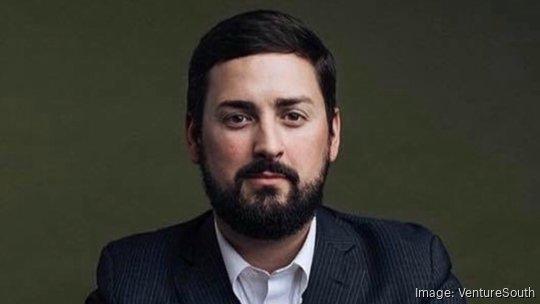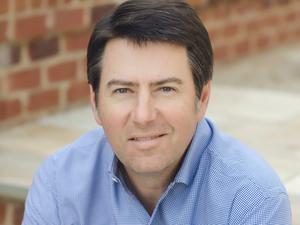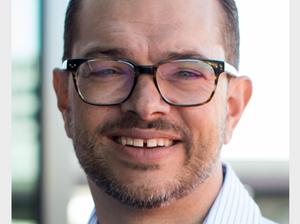
More than a decade ago, a group of investors formed a small angel network in upstate South Carolina. The seeds of that organization laid the groundwork for VentureSouth, a coalition of 21 angel networks and startup organizations across the Southeast. Richmond nonprofit incubator and startup hub StartUp Virginia became part of the network almost two years ago, and through the network, investors have placed capital into such Richmond startups as Babylon Farms, HopDrive and RoundlyX.
Richmond Inno recently talked with VentureSouth Managing Director Charlie Banks about the organization’s history, moving into Richmond and the fundraising environment for startups.
How did VentureSouth expand into what it is today? When you fast forward a couple of years [after its formation], the group had made a couple of investments, but they realized that they couldn’t write a check size that was big enough to make a long-term impact with a company. They started to syndicate and bring in other firms and funds and high-net-worth individuals to really round out these capital raises.
About that time, I had started to get involved with the group. I became interested in the business model and wanted to support entrepreneurs in general. Myself, Matt Dunbar and another partner, Paul Clark, who is an investment banker by trade, got together and decided that we ought to take what was being built in Greenville and replicate that in other markets across South Carolina. Our thesis was that if we could attract more people to the table, we could write bigger checks, attract better deals, have bigger exits and have the ability to recycle the capital. So, we started the South Carolina Angel Network about 10 years ago and replicated the model across South Carolina. But we quickly realized that what we were doing resonated outside South Carolina. We rebranded as VentureSouth and have built it into what it is today. We are by far the most active early-stage investor in the Southeast and probably the second-largest in the country.
How is the network put together? Everybody is a local organization but is a VentureSouth member. What we have done is create these local groups or affiliates or chapters. We have 21 of those across the Southeast. Our group in Richmond is part of that network of community-based groups. The local groups are an offshoot of the parent group. Everybody invests at the same time and gets the same deals. You might be in Richmond, but the deal is in Charleston, South Carolina, or vice versa.
When did you move into the Richmond market? We have been, I think, 18 months in the Richmond market. We had already made some investments in Virginia, and we had a group of investors who were already members of VentureSouth. They liked our process and liked what we were doing. One of the benefits of these community-focused groups is that it gives us a lens into the various startup ecosystems across the Southeast. [Startup Virginia’s] Brad Cummings and his group had already done some co-investing. We liked what was going on in Richmond and had started to build a relationship with the Startup Virginia crowd, Noelle [James] and Rich [Wintsch]. It made sense to partner with them and start a VentureSouth group in Richmond.
What was Venture South’s first investment in Richmond? It was Outdoor Access [which allows landowners to more effectively monetize their land for use by outdoor enthusiasts]. … Since then, we have done more and want to do a lot more. I think there is pent-up demand for early-stage investments in Richmond. We have a really great group of members in Richmond, all of whom feel like they have a great pulse on what is going on in Richmond and have really started to understand the specifics of an angel deal. At this point, we are working through that pent-up demand and hope to do more.
What is the current environment for venture investments? If you look back historically, some of the best investments that have ever been made in the venture space, and some of the best companies that have ever been created, have come during peculiar economic times. Airbnb was created in 2010 right after the crash. With passionate entrepreneurs who are solving problems, the investors tend to follow. We believe it is a good time to be making investments.
What is your capital base for investments? It’s primarily high-net-worth individuals, but we have other venture firms. We have some light institutional capital. We have some corporate venture-type money as well. While it is primarily designed for individuals to build their portfolio, we have gotten to the size and our track record that we are able to be an avenue for other institutions.
How do decisions get made on which investments to make? All decisions are made individually. All we do is find the deals and do the due diligence. A lot of the diligence work is done by volunteers or members themselves. We then structure and negotiate the deals and then it is a “pass the hat” model. Anybody across the network can opt in or opt out. We also have a fund model within our organization, but for the most part it is the network side of the house and the individuals who are making the decision. We have a family of funds that does actively co-invest with members.
How do the companies benefit when tapping into a larger network? We have 500 and soon to be 600-plus individuals who are just smart. They are successful. There really isn’t an industry that we don’t have expertise in, because of the expertise among the members. Companies get access to that industry knowledge as well as relationships and access to customers that can help a company grow.
Your investments are angel and early seed, correct? Most of our investments are $500,000 to $1.5 million for the first check, but we do a lot of follow-up investing as well. As a company continues to grow, we will fund them.
What are some success stories? We have had quit a few. We cannot release the details of many of them. They are undisclosed. We have had a number of exits and our track record is looking really good. A lot of the really exciting ones are still going.
Do you have industries that you specialize in? Our investments are geographical based. We have a pretty good understanding of what early-stage companies should be valued at in the Southeast. We believe those valuations are in line with the risk that should be taken at this stage in the game. If you go outside the Southeast, valuations tend to be a little higher. There are probably dozens of reasons for that. A lot of it has to do with historical valuations in Silicon Valley, Austin, Boston and New York. In term of industry, we are pretty agnostic. A lot of what we invest in is tech-enabled. We don’t do a lot of consumer products, but occasionally we see one we like.
What are your feelings about the tech scene in Richmond right now? I think Richmond and the other ecosystems in our network are coming into their own. Greenville, South Carolina, and Charleston, South Carolina, are very similar. Of course, Raleigh-Chapel Hill are far ahead. Wilmington, North Carolina, has done a good job. I put Richmond in that category. I think it really has just started to flourish. I think the next five years are going to look better than the last five. In our opinion, investable companies always find capital. It is often not a capital availability problem when companies don’t get funded. We talk to 20 or 30 companies every month. We nail that 20 or 30 down to four to six that we spend time with. And of the four to six that we are spending time with, we are only going to invest in one or two. We do eight to 12 new investments a year, but we will do 20 to 30 follow-up rounds in existing portfolios. Last year we did 34 deals, 12 of which were new, and the rest were existing companies.
Where do you see the ecosystem going in the Southeast over the next few years? I think the growth has accelerated after Covid. Folks have really started to understand that they can work and scale companies anywhere they want. And because of Covid, they were able to live where they wanted to. And we have the good fortune of having an environment that folks want to live in. We have seen a substantial growth in high-powered entrepreneurs who have moved here from New York City and the West Coast and Austin. They like the Southeast living climate better.

